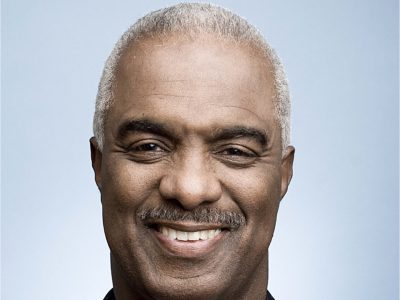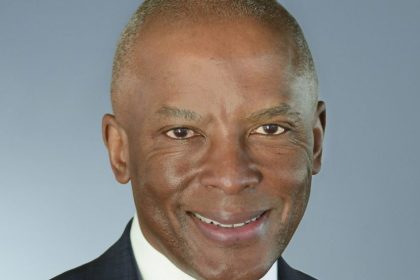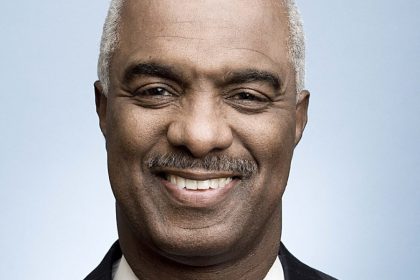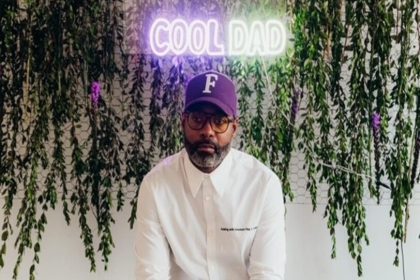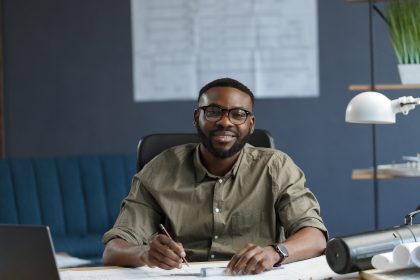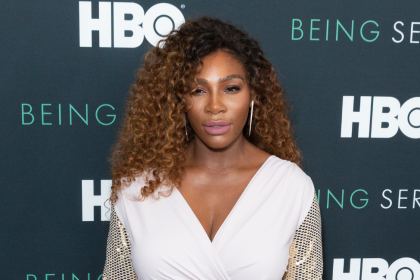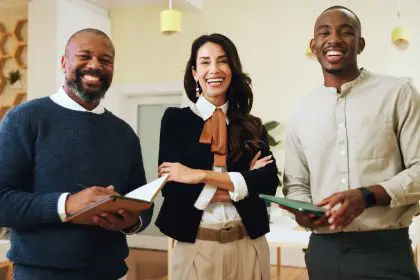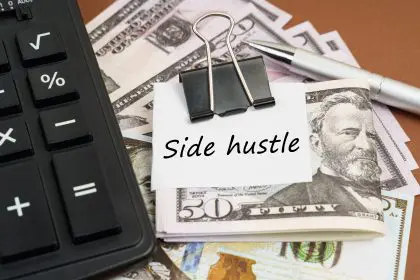Iymaani Aytes, a prominent arts and culture strategist from Brooklyn, NY, is redefining the cultural landscape in Atlanta through her innovative leadership and community-focused approach. As the founder and principal consultant of the Aytes Agency, she has made significant strides in making the arts more accessible and inclusive. Aytes’ extensive background includes impactful roles at the Alvin Ailey Dance Foundation, where she spearheaded initiatives like Destination Dance Ailey Atlanta to deepen community engagement. Her expertise is leveraging creativity to foster connections, drive social change, and empower diverse communities. With a strategic blend of arts, education, and culture, Aytes continues to build vibrant ecosystems where the arts serve as a powerful conduit for societal transformation.
Aytes recently met with Munson Steed to discuss her work and the Atlanta Symphony Orchestra’s second annual HBCU AccessFest, which connects young people to opportunities in higher education, mentorship, networking and career paths. The free college and career fair will take place on Sept. 21 at Atlanta’s Symphony Hall within the Woodruff Arts Center.
[Editor’s note: This is a truncated transcribe of a longer video interview. Please see the video for the extended version. Some errors may occur.]
Hey, everybody! This is Munson Steed, and welcome to “CEO to CEO,” where we bring you some of the most dynamic CEOs in the marketplace. I’m going to allow Iymaani Aytes to introduce herself. She is an amazing leader. She is transforming both the city and institutions, creating multicultural exchanges and intergenerational transformation through experiences and her agency.
Thank you so much, Munson. It’s a pleasure to be here with you. The Aytes Agency recognizes culture as a shared experience through tradition and expression that unites everyone. We specialize in community engagement, strategic partnerships, and dynamic programming to help organizations grow and connect with diverse audiences.
This is the second year for HBCU AccessFest in Atlanta. How has it moved forward now that you’re in year two?
The opportunity for AccessFest and the Atlanta Symphony Orchestra [ASO] came through a connection I made while I was working with the Ailey organization via a woman who was a good friend of mine, Brandi Hoyles. Last year, she and I came up with this idea to host this wonderful HBCU AccessFest opportunity to deepen the ASO’s relationship with the community here in Atlanta. Brandi is no longer with the ASO, and so, this year, it’s really important that I continue the legacy that she created and also the impact that was created last year.
We had over 30 HBCUs from across the country come to the ASO, APS [Atlanta Public School] students, private school students, Black-owned businesses through our partnership with RICE [Russell Innovation Center for Entrepreneurs], and so many others.
What made you want to create something like AccessFest, connecting students to HBCUs and successful professionals?
Well, I’m an HBCU graduate. I went to “the” Virginia State University in Petersburg, Va. As an alum of the institution, and understanding the culture and relevance HBCUs have in our community, and what we can do as graduates, it was really important for me to get behind an event and a project and an opportunity like this. We partner with so many wonderful organizations that understand the importance of HBCUs, like the United Negro College Fund and the Thurgood Marshall College Fund and others that really support Black students in communities around the country.
Did you ever imagine that you’d be working with young people, sowing the seeds of success?
Absolutely not. I mean, honestly, I’ve done a lot of work in education, of course, arts and culture. My background, however, education-wise, is in psychology. I thought I would be a psychologist when I was a freshman at Virginia State University. I went to Columbia University for graduate school, and then, really thought through the idea of what that would look like. And internships are so important, and that’s why we have them available for young people because the internship that I had made me realize [psychology] wasn’t the right path for me. The work that I do is really grounded in supporting young people … I’m grateful for it.
Thinking about that as a female CEO who is transforming the landscape, what would you tell young female CEOs who really are waiting and looking forward to dreaming like you? What would you tell them that they need to know?
We all have these little ideas and things that we want to do. But sometimes we’re so stuck on what we are told to do. We’re still stuck on what we’ve seen by our parents and those that have raised us. And they’re like, “You have to do this in this particular order.” And sometimes that works. But sometimes it’s OK to take a step out. For example, I went to undergrad. I went to graduate school. I got a job. I got several jobs. And even in all that, there was still something that I knew was missing. And really, it is the opportunity to be an independent worker. It’s an opportunity for me to be an employee to myself, an entrepreneur, and to believe in my own visions, my own voice. And that was just something that you don’t get, in my opinion, when you’re working under an employer. And so, I would tell them to just listen to their voice. You know everything that you need to know to be successful … It’s OK to try and try and try again. And also, once you’ve made it, it’s OK to put your hand down and lift your sister up or your brother up.
As a Black woman, how do you take up space with courage inside places that are corporate or haven’t had experiences with our community or our culture on a regular basis?
It takes confidence. But I think what’s really important is to have a mentor … I’ve been in corporate spaces for a very long time, but I didn’t always have mentors. I didn’t always have someone to say, “It’s OK to have this idea, Iymaani, and share it with other folks at the table in the room” … [Once] I got my mentors (Baraka Saleh, Judith Monta, and Catherine Williams) from Ailey, I was able to feel more confident when I entered these rooms, and more confident sharing my ideas even if they weren’t accepted … Mentorship is really important in that space to know that it’s okay, especially as a young woman of color.
If you were called to Virginia State University to give the commencement speech, what would you challenge your younger self and those who are now getting ready to enter the world and the marketplace and community to do? And what would be the title of your speech?
I would speak on the art of connection, building communities through culture and creativity. I would empower the students to understand the importance of connection. I’ve spoken about mentorship and how important that is; networking, and how important that is. So, I would drive home the idea and the importance of having a mentor. And once you have that mentor, to really keep a good relationship with them, but also to network. Graduating from an HBCU brings you so many opportunities, so many resources to connect not only with your fellow students but also alumni like myself. And so, that means, hey, hitting me up and saying, “Iymaani, I’m in Atlanta, and I’m looking for a job.” And I will call Munson Steed and say, “Hey, Munson, I have a student from Virginia State that just graduated with a journalism degree. Can you help?” Additionally, access means a lot to me, and I would ensure that students understood how important it was for them not only to provide access to students that were behind them but also to do good work so that access is afforded to others.
Share one quote that speaks to you that you would share with others so it can continue to be spread.
A quote that really resonates with me is from Mr. Alvin Ailey. And it says, “Dance came from the people. It shall always be delivered back to the people.” And how I make it make sense for me is that my work is really to ensure that all arts and culture are available to people, to our community. And I will do my best to ensure that they understand that through the work and access that I do.
Highlight some of the wonderful sponsors supporting AccesFest.
We’re really excited to have Invesco QQQ and Delta Airlines as our sponsors this year. They both sponsored the event last year, so we’re really thrilled that they are back this year to support HBCU AccessFest. Invesco QQQ will be doing a panel. They did this panel last year as a financial literacy panel called “How Not to Suck at Money,” hosted and moderated by Taylor Rooks. We’re excited to have them back talking to students and their families about how not to suck at money.
Talk about the Russell Innovation Center for Entrepreneurs’ participation in AccessFest.
What we’ve tried to do with HBCU AccessFest is to create access to the community. We are creating access to students in the metro Atlanta area and their families. We’re creating access to entrepreneurs, right? This brings in our partnership with RICE. For the second year, RICE has come in to support HBCU AccessFest and share their members with us. We are a free event and some of their members are entrepreneurs that are jewelry makers. They have service-based businesses. They have food trucks. And so, AccessFest really is an opportunity for these businesses to come on-site and sell their goods and services at no cost. And we’re just excited that RICE has agreed to participate again this year.



